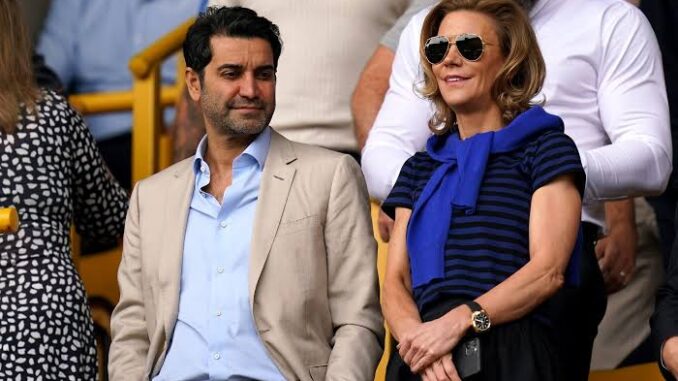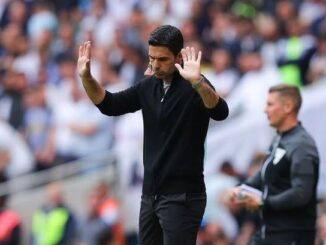
Newcastle United co-owners Amanda Staveley and Mehrdad Ghodoussi were likely not in a position to continually put up their share of the equity after it’s emerged they will leave the club.
That is the view of finance expert Stefan Borson, who exclusively told Football Insider Newcastle are going to require a “huge” amount of investment from their owners over the coming years before they can be self-sufficient.
Staveley and Ghodoussi took a 10-per-cent stake in the north-east giants after helping Saudi Arabia’s Public Investment Fund (PIF) secure their £305million takeover at St James’ Park in 2021.
The husband and wife have been instrumental in the day-to-day running of Newcastle since the takeover was complated, but their share has been reduced to six per cent after PIF and the Reuben family have upped their stakes in the club.
It has now been reported the pair have sold their remaining stake and will leave the Tynesiders this summer.
Newcastle owners need to invest after substantial losses
Borson suggested Staveley and Ghodoussi likely knew their share would be diluted down eventually due to the amount of money that’s needed to help fund the club.
“I don’t know the arrangement in terms of how they exit,” Borson told Football Insider.
“They have been diluted down over time and will continue to be diluted down.
“Newcastle are substantially a loss-making club on an operating level and that will continue for the foreseeable future.
“Each year that goes by, they will need investment from the parent company.
“I suspect Staveley and her husband were not in a position to continually put up their share of the equity required every time there is a funds raise.
“At some point, they are just going to keep getting diluted down and they will eventually become irrelevant in the mix.
“I don’t know the extent to which this was all planned in the first place, but they will have always known they were going to get diluted down over time because Newcastle are going to require a huge amount of investment for quite some time before it could be even close to self-sustaining.”



Be the first to comment